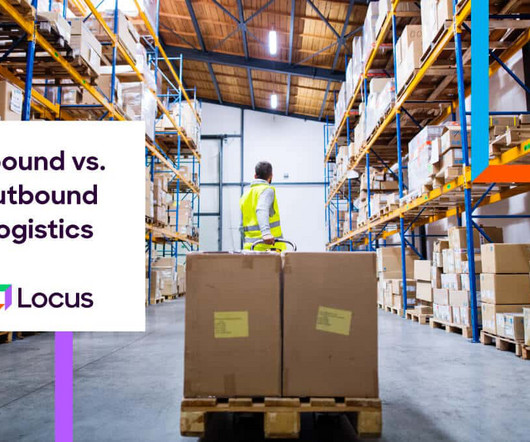Inbound vs. Outbound Logistics: Understanding the Key Differences and Optimizing the Last Mile
Locus
JUNE 2, 2023
In this post, we deep dive into the world of inbound and outbound logistics, dissecting their key differences, their significance in the broader spectrum of supply chain operations, and their critical role in the last mile of delivery. Focus Procurement, receiving, storage, and inventory management. What is outbound logistics?














Let's personalize your content